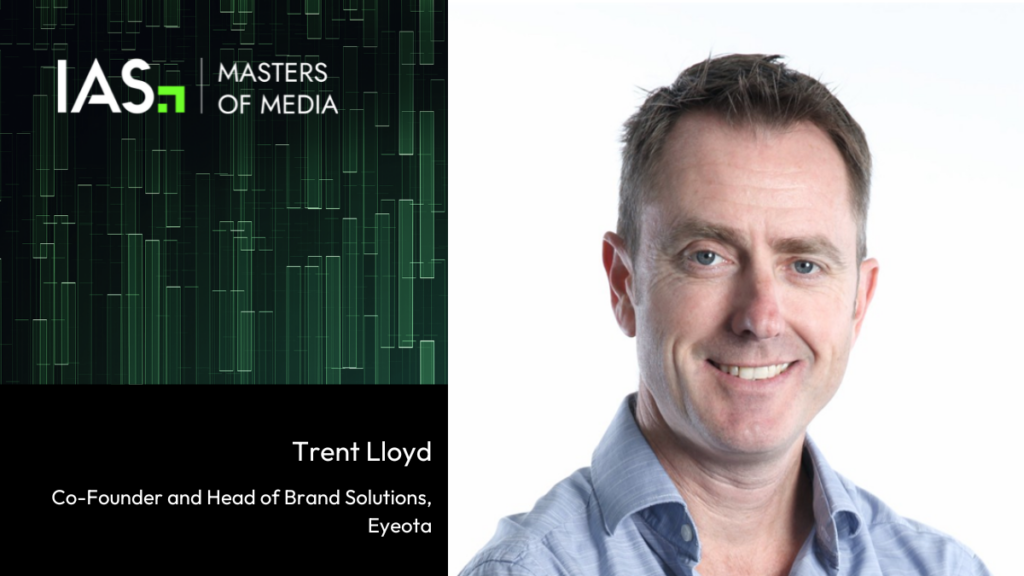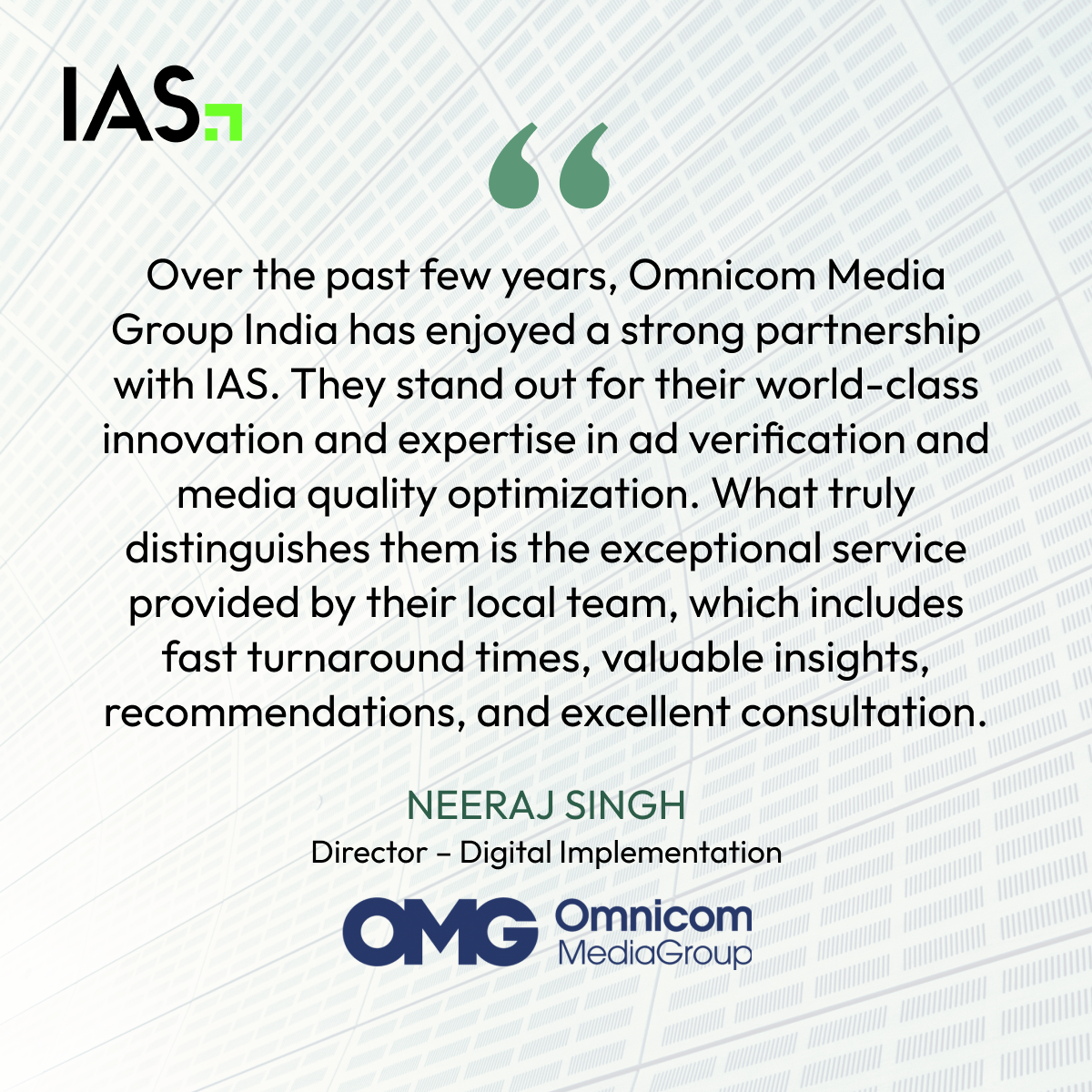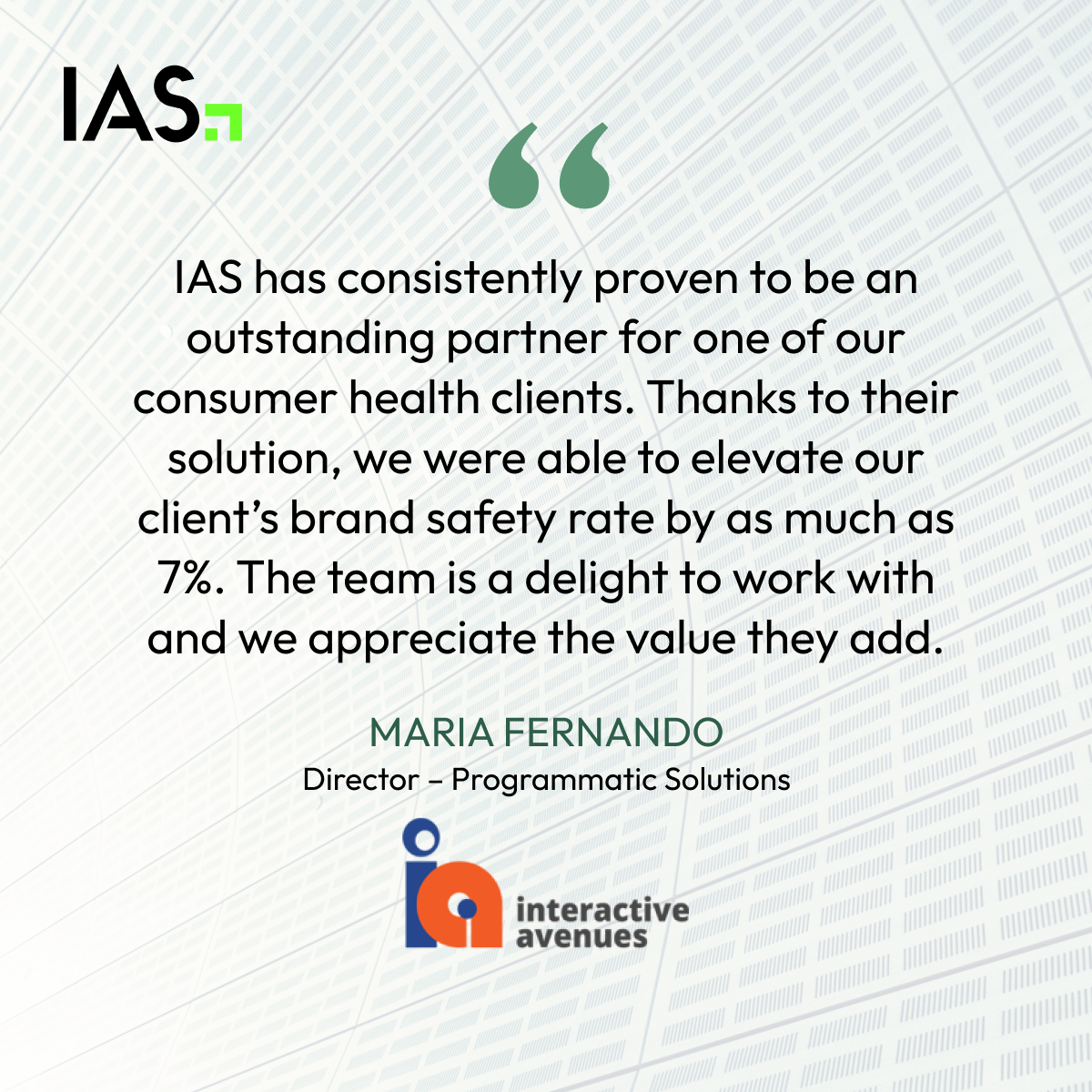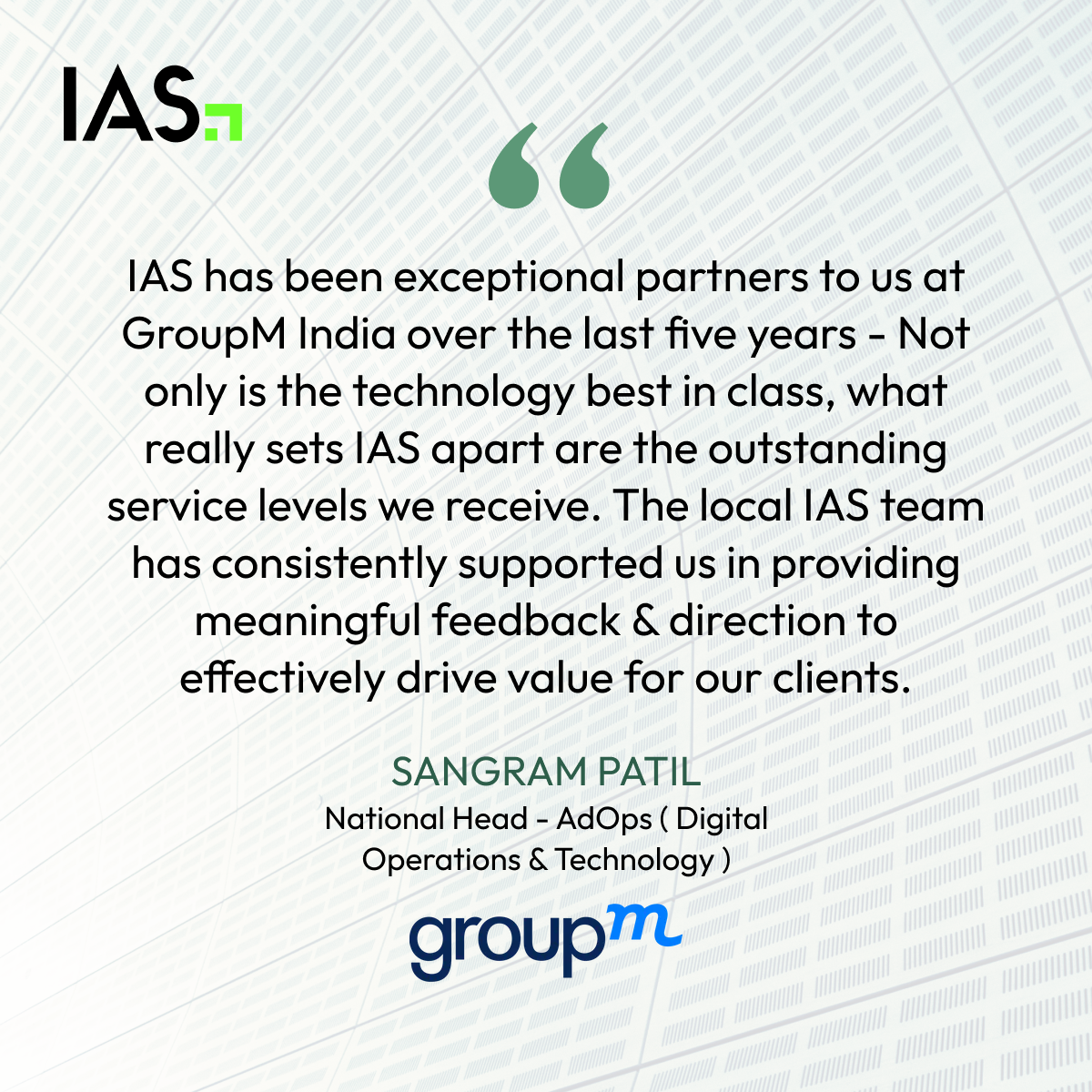
In this exclusive “Masters of Media” series, Integral Ad Science (IAS) speaks to the Movers and Shakers of the APAC advertising industry, on all matters digital.
Trent Lloyd is co-founder and head of brand solutions at Eyeota, the global data transformation company. With over 20 years experience in data, marketing and adtech, Trent is a highly respected, entrepreneurial leader with proven success in launching, building and scaling businesses across Asia, Japan and ANZ regions.
At Eyeota, Trent works closely with leading brands and organizations to leverage and implement data-driven strategies and audience intelligence solutions for transformative growth and expansion initiatives. Previously, Trent was VP at Adify (sold to Cox Enterprises) and has held specialist advisor roles at Salesforce and Lineup Solutions.
IAS: Please tell us about your digital advertising journey and your current role at Eyeota
Trent: I spent approximately 9 years in print – Newspapers and Magazines, before joining Fairfax Digital as sales director from my role as Advertising Director of Fairfax Magazines.
After 2 years in that role and 11 years at Fairfax, it was time for a change. A US ad tech called Adify was looking for a country head in Australia to launch their offering here. I got that role and this is where I met Kevin and Kristina who would later be my co-founders in Eyeota. Adify was a platform business primarily serving media companies and small, independent publishers and proved a great learning experience as well as providing a very informed view of the early emergence of programmatic. It was also a great introduction to working in relative isolation, remotely and independently including quite a bit from home in the early days.
When Adify was acquired by Cox Media, the 3 of us decided to start our own company. Initially we acted as representatives of overseas tech entrants to APAC whilst in the background we’d hired a founding CTO who built the first iterations of Eyeota audience technology capabilities.
IAS: Given the evolving situation around the pandemic, what have been your key learnings in 2021?
Trent: We’ve had a lot of experience with remote work for years ahead of the pandemic so from our perspective, we were able to transition fairly comfortably.
Communication is obviously key – ensuring people feel connected, supported and informed.
I think we’ve learned about efficiency – time that can be lost getting to and from the office as well as time that ebbs away during a day in/around the office that isn’t always ultra productive. The right people in place with good support and role clarity can produce great work efficiently and effectively from home.
One trade off however is losing that camaraderie to some extent, that human interaction and surrounding ourselves with clever people from whom we learn and exchange ideas, and share inspiration. This extends to customers and partner companies. Our industry has always revolved around relationships and networks and regularly seeing people in person.
IAS: With brands moving away from cookies what’s Eyeota’s approach for audience targeting
Trent: As a provider of global data solutions, Eyeota has always operated under the premise of data interoperability by enabling our customers to onboard, enrich, and activate data in their platform of choice, and being able to do so with confidence and assurance that the data they use is qualified and compliant.
We are committed to ensuring brands and advertisers have continued access to audience data solutions at scale regardless of the changes to our industry. We recently launched our proprietary technology Eyeota Translate that powers flexible and globally available data solutions in a cookieless world.
It works by connecting and matching audience identifiers, such as mobile IDs, hashed email, contextual data, first-party data, using deterministic and probabilistic methods to create addressable solutions for consumer targeting across digital touchpoints and channels. It is important to note that Eyeota Translate is the technology behind our solutions today, and that our entire customer base from brands and advertisers, to publishers and data partners are already leveraging this technology.
Ultimately, we believe it is important for the industry as a whole to embrace comprehensive, interoperable and sustainable strategies that can evolve with the landscape.
IAS: What are some of the initiatives Eyeota has undertaken to stay connected with its workforce and propagate for the wellness of its employees?
Trent: Eyeota is a global business and we have had to work hard at keeping our teams connected and motivated during this uncertain time. Luckily our culture is one that encourages open communication and enables a safe environment to do so. Like most companies, we use Slack and video conferencing to stay connected, and have also incorporated video messaging to share important company updates. What’s more important is giving employees the recognition they deserve. We use the Kudos app to shout out employees who have demonstrated a job well done, and also award spot bonuses to any individual or team who has gone above and beyond on a task. In the last year we added 5 days extra annual leave for employees to support overall rest, health and wellbeing.
IAS: In your opinion is the industry doing enough to combat the trust and transparency challenges in the digital supply chain?
Trent: The industry can always do more to build trust and transparency. The changes being brought on by Google and already implemented by Apple certainly warrant this need. In my opinion data is a vital currency for brands to create better, connected experiences that are addressable to their target customers interests, wants and needs.
However, every brand has had to act as its own data auditor in a buyer-beware world. Data quality and transparency should be a standard component of any data activated for advertising, that any data provider should adhere to and any advertiser or brand should expect as standard.
Eyeota is a founding partner of Neutronian which is a company doing incredible work to build standard data quality frameworks by providing a certification of quality and a compliance rating of audience data that includes everything buyers need to know about a dataset before using it such as sourcing, transparency, dataset characteristics, methodology and processing. Neutronian helps to spotlight the good players in the marketing ecosystem and to standardize those best practices. As marketers around the world work to overcome challenges caused by the COVID-19 pandemic, efficient audience targeting is more important than ever.
I would also note that data privacy regulations should be seen as an opportunity for the industry to educate digital consumers on the value exchange. This approach is the standard practice in Europe with GDPR. Since it came into effect in 2018 Eyeota has been successful delivering consent-based GDPR-compliant audience targeting solutions at scale in this market. I believe there is potential to evolve this method on a global scale through consumer-friendly and transparent tools.
IAS: Any key industry trend you’re bullish on for 2022?
Trent: The urgency of developing stronger first-party data strategies will undoubtedly accelerate over the next year. Google’s plans to phase out third-party cookies on Chrome has generated understandable anxiety within the advertising and marketing ecosystem, but despite the fact that the writing has been on the wall for some time now, most marketers are admittedly unprepared for this fast-approaching reality. A recent Forrester study, commissioned by Eyeota, of APAC-based marketing decision-makers, showed that nearly half (48%) of marketing leaders are not adequately leveraging first-party data sources in their marketing decision-making. Likewise, even though 70% of leaders identify the value of first-party data and analytics platforms in their onboarding processes, only 44% say they’re currently investing in first-party data platforms.
First-party data has always been important to marketing personalisation. Now, with the deprecation of third-party cookies, it’s also the essential foundation for finding and reaching new prospects. In this regard, strong data onboarding practices are vital to ensuring all relevant forms of customer data—offline and online—are being leveraged to uncover new opportunities.
Going forward, effective onboarding is going to be a foundational requirement not only for connecting the customer journey across offline and online touchpoints, but also for finding potential new customers who reflect the key attributes of a company’s best customers and core target audiences.
While customers are at the heart of every organisation, data needs to be at heart of companies’ understanding of their customers. To enable strong customer experiences and robust prospecting in 2022 and beyond, it’s time for marketers to future-proof their organisations by realigning their practices and capabilities around the new reality of first-party data.
IAS: What’s your favourite book/podcast/movie and why?
Trent: I’m on the home trainer a few times per week and usually listen to podcasts when I am. I like ‘Armchair Expert’ because they have a broad array of really interesting guests. But not only that, they delve into subject matter that is not usually what you hear these guests asked about. There’s quite a bit of focus on childhood, upbringing, foundation of dreams, pursuit of those dreams, influencers along the way, how they were raised, how they think and feel etc.
IAS: What is your advice to the fresh talent in the industry?
Trent: If I had my time over again, I’d broaden my experience set during the first 10 years. When you’re starting out I think it’s often difficult to look 15, 20+ years ahead and think about ‘what can I do now and for the next 5 or so years that is going to hold me in really good stead as I enter those key income earning years from my late thirties through 40’s. I spent all my time as a publisher/media owner. Spending a few years on the agency side of the industry, possibly also at a brand would have been healthy to round things out. It is also good for helping to identify where you feel most natural, where you enjoy being, what you are best at and position you to make better, more informed decisions.
 Share on LinkedIn
Share on LinkedIn Share on X
Share on X

